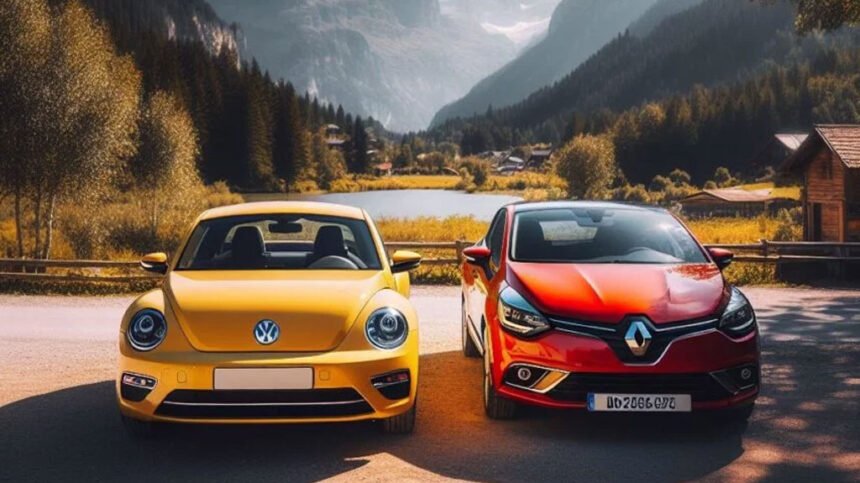Volkswagen Renault collaboration
German auto giant Volkswagen and French automaker Renault are joining forces to develop and manufacture affordable electric vehicles (EVs) specifically for emerging markets. This strategic partnership aims to counter the growing threat posed by Chinese EV companies that have been steadily gaining ground in recent years.
The combined strengths of these two industry giants offer significant advantages:
- Volkswagen Renowned brand recognition, extensive experience in EV technology, and a global network of dealerships and production facilities.
- Renault: Proven track record in emerging markets, expertise in cost-effective manufacturing, and established electric vehicle offerings like the Dacia Spring EV.
By working together, VW and Renault can expect several key benefits:
- Reduced development costs: Sharing resources and expertise will significantly lessen the financial burden of developing new EVs.
- Faster market entry: Leveraging existing technologies and platforms will expedite the launch of new and competitive EV models.
- Enhanced market access: Combining their strengths will open doors to key emerging markets like India, South America, and Southeast Asia.
- Economies of scale: Pooling production volumes will enable them to achieve lower manufacturing costs and offer more affordable EVs to consumers.
However, the path towards a successful partnership is not without its challenges:
- Integration complexities: Combining two large companies with distinct cultures and operating procedures can be a daunting task.
- Intellectual property concerns: Defining ownership and sharing of intellectual property rights could be a source of conflict.
- Competition considerations: Regulatory authorities might express concerns about the potential for a duopoly in the EV market.
Despite these potential hurdles, analysts remain optimistic about the prospects of this collaboration. By joining forces, VW and Renault have the potential to significantly change the global EV landscape. This could lead to:
- Increased innovation: The combined R&D resources of both companies could lead to the development of more advanced and affordable EV technologies.
- Lower prices: Economies of scale and streamlined production processes could translate to lower prices for consumers, making EVs more accessible to a wider audience.
- Wider EV adoption: Increased affordability and availability of EVs could accelerate the transition to electric mobility and contribute to a cleaner environment.
The potential impact of this partnership extends far beyond the automotive industry. It could also have a significant influence on:
- Energy markets: Increased EV adoption could lead to a shift in energy demand, potentially impacting traditional energy sources like oil and gas.
- Infrastructure development: Growing demand for EVs could necessitate investments in charging infrastructure, creating new opportunities for businesses and industries.
- Environmental sustainability: Widespread adoption of electric vehicles could contribute to a reduction in greenhouse gas emissions and help to mitigate the effects of climate change.
Overall, the collaboration between VW and Renault represents a pivotal moment in the global race towards electric mobility. The potential rewards are significant, and the success of this partnership could reshape the future of the automotive industry and contribute to a more sustainable future for all.
It will be fascinating to observe how this partnership unfolds and whether it can live up to its ambitious goals. The success of this collaboration could have far-reaching consequences, not just for the automotive industry, but for the world as a whole.
Both Volkswagen and Renault are responding to the challenge posed by Chinese manufacturers who have been able to offer competitively priced EVs, partly due to state subsidies that lower production costs. As the automotive industry shifts towards electrification, European carmakers are adapting their strategies to maintain their competitive edge in the global EV market. The focus is on leveraging economies of scale, technological advancements, and manufacturing expertise to produce EVs that are both high-quality and affordable. This is a crucial move to secure a significant share in the rapidly growing EV market, especially in regions where cost is a major factor for consumers.
Read also : Ola S1 X Ola announces bumper discount of Rs 20,000 on its internet, hurry up





